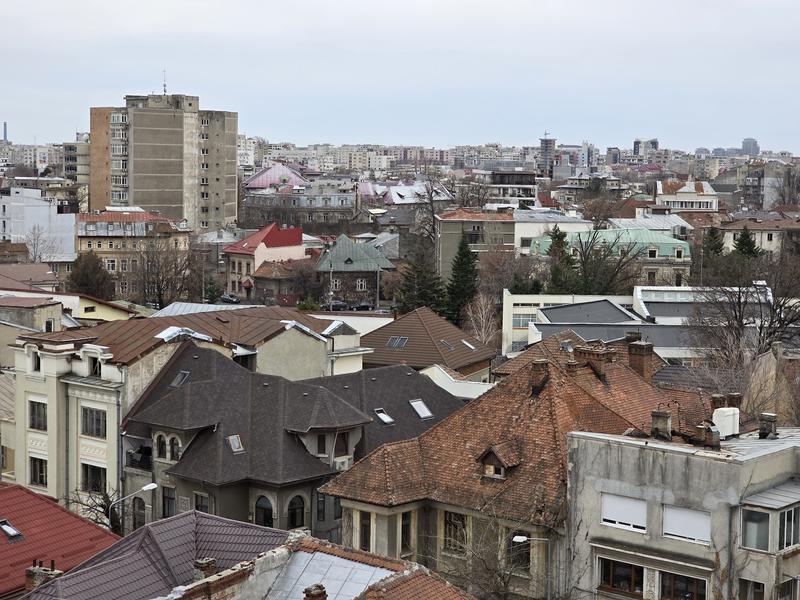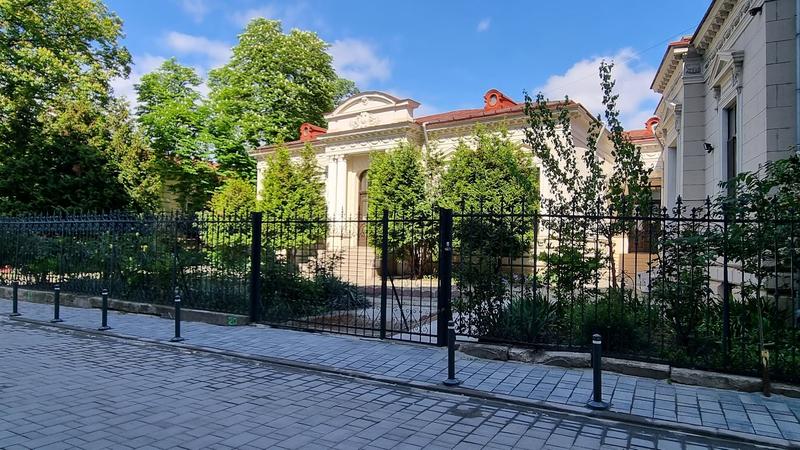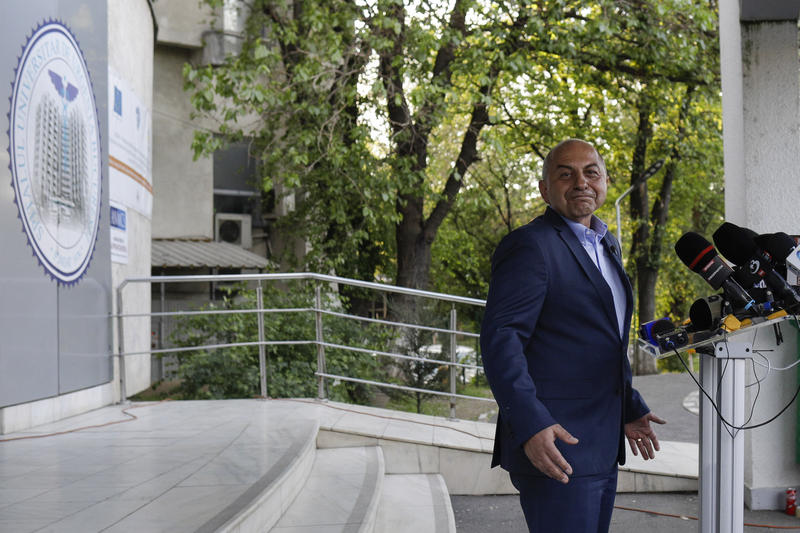The presentation of a report condemning the Romania’s communist regime in Parliament on Monday reverberates today with most newspapers continuing their reports on the events, aimed to coincide with the days of the 1989 anti-Communist revolution.
In rest - trouble everywhere: with national legislation, with EU accession, with the stability of the government and even with some Cheeky Girl in love with a British MP.
“After the balconies of the Timisoara Opera, of the Central Committee of the Communist Party and of the Bucharest University, the balcony in Parliament has become a new symbol for anti-communism”, proclaims Evenimentul Zilei.
The newspaper compares the balconies where key speeches were held during the 1989 revolution with the balcony in the Romanian Parliament where far-right leader C.V. Tudor has verbally aggressed intellectuals who have insisted for communism to be declared a crime.
The aggression took place on Monday, when President Basescu presented a report that blasts the communist regime officially for the first time in post-communist Romania.
The event prompted ultranationalist leader Tudor, who is nominated as a “court poet” for the communist leadership in the report, to boo the President and threatening an intellectual who supported the report with “throwing you over the balcony”.
Cotidianul welcomes the report put up by the so-called “Tismaneanu commission” as it is “the most complete description-analysis of Romanian communism”. But the paper criticizes the report for lacking homogeneity and “too pathetic and non-academic a tone”.
Jurnalul National challenges the authority of historian Vladimir Tismaneanu to lead the commission that put up the report as the newspaper publishes statements in support of Communist Party policies, that Tismaneanu made before he left Romania for the US in the eighties.
And both Gandul and Evenimentul Zilei publish excerpts from the report that show how the country’s first post-communist president, Ion Iliescu, used to police student and youth activities on Christmas and other occasions when he led the Communist Youth Union in 1968.
Adevarul believes the condemnation of communism is a “step towards civilization” and tells the dramatic story of a mother who lost her 17-year old son in the 1989 revolution.
Meanwhile, newspapers turn their eyes on current issues with Evenimentul Zilei publishing an interview with PM Calin Popescu Tariceanu, who admits that he was far from certain that his Liberals and their Democratic Party partner would win the 2004 elections against a stonger than ever Social Democratic Party.
He also admits that two years ago he was not yet ready to take the presidency of the Liberals, a position where he is continually challenged today.
Cotidianul notes that when a group of dissident Liberals decided to withdraw from Tariceanu’s party in order to join an alternate political movement, the “Liberal Platform”, yesterday, the government loses all certainty of support in parliament.
That is because the dissidents have announced that while they’ll support the governing alliance further, they might vote in favour of motions tabled against the government.
For its part, Gandul quotes a European report that warns about the threats to European borders once Romania and Bulgaria join the Union on January 1. The study names the lack of personnel training, logistics and funds in describing the capacity of the two countries in securing their non-EU borders.
Cotidianul also reports that a series of proposals to change Criminal Code, providing prison sentences for journalists in certain circumstances, have sparked huge reaction among the civil society.
And in a separate report the newspaper notes a warning from European Commissioner for Enlargement Olli Rehn who said in Bucharest yesterday that unless it complied with EU rules by approving a fully-fledged National Agency for Integrity, to secure good checks on the wealth of public officials, Romania risked exclusion from certain areas of European judicial cooperation.
The Agency received parliamentary approval recently but was stripped down of many of its powers in the process.
On a ligher note, Evenimentul Zilei reports that the British media is on fire because of a love story between British MP Lembit Opik, 41, and Romanian Gabriela Irimia, 24, a member of the one-hit wonder twins group Cheeky Girls.
While the British papers slam Opik for dealing a heavy blow to the image of his Liberal Democrats, Margareta Irimia, Gabriela’s mother, is proud that her twin daughters start to recover much of their fame and does its best to help them in this regard, as Evenimentul Zilei suggests.



















